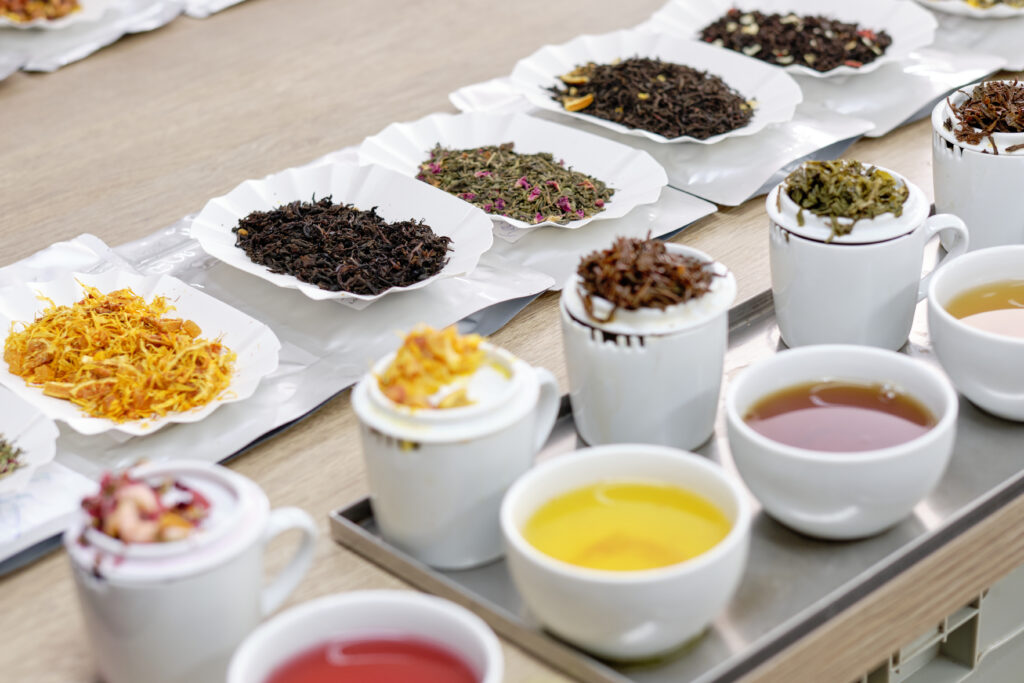Add 200.00 AED for free shipping.
Add 200.00 AED for free shipping.
Add 200.00 AED for free shipping.
Add 200.00 AED for free shipping.

In Saudi Arabia’s rapidly modernizing landscape, discerning tea enthusiasts face a familiar challenge. Generic international tea brands rarely capture the nuanced flavours that Arabian palates have cherished for centuries, whilst traditional options often lack the artisanal quality and convenience that contemporary lifestyles demand.
Imagine hosting important business guests only to serve mass-produced tea that tastes flat and uninspiring. Picture searching endlessly for authentic blends that honour both Saudi and wider Arabian traditions. Consider the disappointment of premium-priced teas that arrive stale, poorly packaged, or without the cultural understanding that transforms tea service from routine refreshment into meaningful hospitality.
Enter the world of artisanal Arabian tea, where centuries-old traditions meet contemporary refinement. As the world’s first artisanal Arabian tea brand, Tchaba bridges this gap perfectly, crafting premium blends that celebrate the richness of Arabian heritage whilst delivering the quality, convenience, and authenticity that modern Saudi tea enthusiasts deserve.
Key Takeaways
The story of tea in Saudi Arabia begins in the desert, where Bedouin tribes discovered that certain herbs and leaves could transform simple water into elixirs of comfort and wellbeing. This ancient wisdom laid the foundation for what would become one of the region’s most cherished traditions.
Traditional Saudi tea culture centres around shai (Arabic for tea), typically served in small glass cups that allow the rich amber colour to shine through. The preparation itself is ceremonial: water heated to precise temperatures, leaves steeped with patience, and the final pour executed with grace. This ritual transforms an everyday moment into something sacred, embodying the Arabian principle that hospitality reflects one’s character.
What makes Saudi tea culture distinctive is its integration with daily life. Whether welcoming guests, conducting business, or gathering family, tea serves as the universal language of respect and warmth. The phrase ahlan wa sahlan (welcome) is almost always accompanied by the gentle clink of glass against saucer, signalling the beginning of meaningful connection.
Modern Evolution: Wellness Meets Heritage
Today’s Saudi tea enthusiasts represent a fascinating blend of tradition and innovation. The modern consumer is wellness-conscious, quality-focused, and globally aware, seeking teas that honour their heritage whilst supporting mindful living.
This evolution has created demand for premium brands that understand both cultural significance and contemporary expectations. Herbal infusions, antioxidant-rich white teas, and functional blends are embraced as part of a broader wellness journey.
Green tea, while not traditionally Arabian, has been adopted enthusiastically for its wellness properties, yet only when presented with the same respect and ceremony as traditional black teas. For Saudi consumers, quality is paramount: the difference between mass-market bags and artisanal leaves is unmistakable.
Recognising that Saudi consumers deserve teas designed for their refined palates, Tchaba pioneered blends that speak directly to Arabian sensibilities.
For those seeking caffeine-free options, Tchaba’s herbal infusions, mint, chamomile, and spice blends, provide familiar comfort while rewarding sophisticated palates.
Gift-giving is central to Saudi and Arabian culture. Tea presents, when thoughtfully curated, express respect and sophistication.
Tchaba’s premium gifting solutions pair artisanal quality with elegant presentation. From collections that tell cultural stories to packaging designed for display, every gift reflects care. In both personal and business settings, premium tea gifts create lasting impressions and elevate hospitality.
Centuries of culinary heritage have shaped the Arabian palate to favour depth, spice, and aromatic intensity. Teas designed for other markets often feel flat when served in Saudi Arabia.
Tchaba blends are crafted to satisfy layered expectations: inviting aroma, immediate recognition of quality, evolving flavour development, and a clean, satisfying finish. This artistry ensures the teas perform beautifully whether served hot, as cold brews, or in contemporary preparations.
For Saudi consumers, tea is more than refreshment, it is wellness in practice.
Each blend offers a mindful pause, a way to slow down and nurture both body and spirit.
Saudi consumers embrace convenience but expect it to complement, not replace, tradition. Same-day delivery, online ordering, and customer service in Arabic all enhance tea rituals without diminishing authenticity.
Tchaba integrates modern systems with timeless quality, ensuring every order arrives fresh and every interaction honours hospitality.
Younger Saudi consumers increasingly align their purchases with personal values. Tchaba’s certified plastic-free, compostable packaging and Rainforest Alliance sourcing speak directly to this consciousness.
Responsible practices ensure that every sip reflects not only premium quality but also respect for the future, a principle deeply in tune with Arabian values of stewardship and care.
As Saudi Arabia continues its transformation, tea culture acts as both anchor and compass, grounding citizens in cherished traditions while guiding them toward modern refinement.
With Tchaba, every cup becomes more than a beverage. It is a pause, a ritual, a bridge between heritage and progress. True wellness lies not just in what we drink, but in how we experience it, sip by sip, with meaning.
They are designed for regional palates, often incorporating spices and flavour notes that reflect Arabian cuisine and climate.
Heat water to the correct temperature, use about one teaspoon per cup, steep with patience, and serve in small glass cups to showcase colour and aroma.
Energising black teas like Arabian Breakfast for mornings, and refreshing herbal or white teas for hot afternoons.
Herbal blends aid digestion, promote relaxation, and deliver antioxidants. Tea rituals themselves provide mindfulness and balance.
Premium collections with cultural resonance, elegant packaging, and quality assurance. They reflect hospitality and respect in both personal and business contexts.